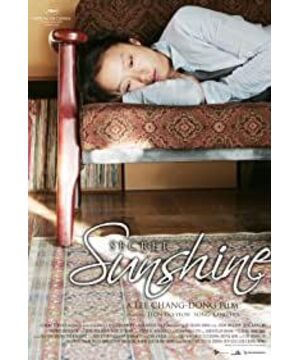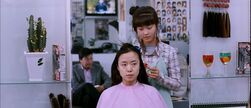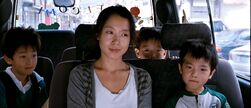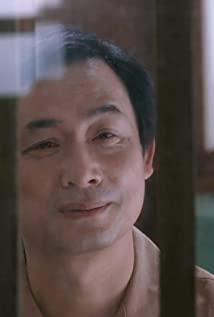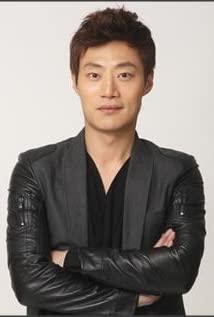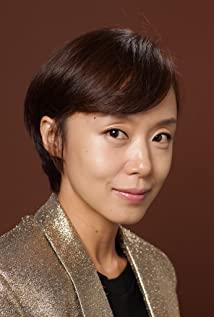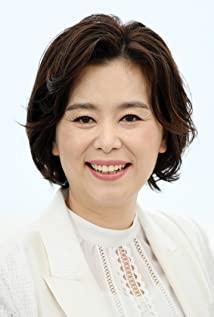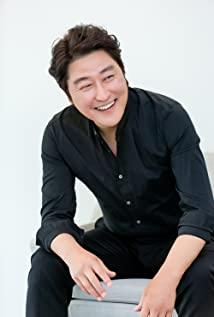Author: Andrew Chan
Translator: csh
The translation was first published in "Iris"
Li Cangdong used the term "despair" when describing his creative process. For anyone who knows his work, this should not be a surprising fact. In 1997, at the age of 43, he released his feature film debut "Green Fish" (before that, he was a well-respected novelist). Since then, this great Korean director has always demonstrated his own understanding of the dark. The fun. In the past few decades, in his most ruthless and cruel works, he has dealt with the following themes: the recent history of oppression in the motherland ("Mints"), and the sexual abuse of women ("Oasis" and "Poems") ), and the despair that a young man felt in an increasingly mysterious world ("Burning"). What he uses is a series of unknown themes, and he also gives his works a perfectionist artistic level, all of which give his works a special quality, as if every film is a great struggle. There was a gap of eight years between "Poetry" in 2010 and "Burning" based on Haruki Murakami's works. During this period, Li Cangdong gave up some projects. He hoped to find the one that would most inspire a sense of urgency. project. In the end, his choice seemed to be right: this work won him the most extensive praise in his career. This work involves many recent people and events, such as Donald Trump, class differences, machismo, and the ongoing conflict between North Korea and South Korea. All this makes this thriller very suitable for the current destructive political situation.
Last week, Li Cangdong participated in the retrospective of the Museum of Modern Art-this is his first visit to New York in eight years. I took this opportunity to talk to him about his love for film and literature, and why he became a narrator.
Reporter: What was the first impressive work you saw in the cinema?
Li Cangdong: That was in the sixties, when I was about eleven years old. An animated cartoon was released in South Korea, telling the story of a character named Hong Gildong. He is a bit like Robin Hood in Korean literature. This image originated from an ancient, classical novel. Children my age are looking forward to the release of this movie, so I especially want to watch it. However, my family's economic conditions are not very good, so I don't have enough money to buy tickets. My cousin knew that I wanted to watch, and my cousin knew that I wanted to watch, so he gave me the ticket. I went to the theater and it was crowded with children. I joined the team, but as I got closer and closer to the ticket office, I started to have a feeling: I really don't want to watch this movie anymore. I cannot be sure of the reason for this idea. I wanted to watch that movie a lot, but when I found out that I had to buy tickets, I wanted to break away from those kids and be an independent individual.
In the end, I went to the theater next door, where "Master Jim" (Richard Brooks) was showing. I don't even know what this movie is about, but I decided to go and watch it. I was too young at the time, so it was difficult for me to understand that movie. It is too dark and terrible-the sea and the storm! This is an older, second-round theater. There are not so many audiences there, of course, there are absolutely no children in the audience. I sat alone in the dark, full of fear and anxiety. When the movie came to a close, I realized that the owner was just walking towards an unfortunate destiny. This is too unbearable. Before this, I have also watched movies, but this is really the first time I choose a movie and buy movie tickets by myself. This is an original experience. At that moment, the fear and empathy I felt left a very deep impression on me.
Reporter: What types of movies could you watch at that time?
Li Cangdong: If you are asking about the movies that influenced me, I can say that many movies have nothing to do with the "masterpieces" in your eyes. "Master Jim" is such an example. Although it is adapted from a great novel, it is not actually a great movie. Nicholas Ray’s "Beijing 55th" is also an example of this. I also like this work very much. Until a long time later, I may not find the kind of "great" movie in your impression. When I was young, before about twenty years old, South Korea had a system where every foreign film introduction must be approved by the government, just like the Chinese system, so it is difficult for us to see these films. And in the 1980s, when I was in my thirties, I began to see these great movies-of course, only through piracy. Of course, during this period, there were many directors who influenced me, such as Casa Vetti.
Reporter: Before you became a film director, you wrote many successful novels. You have expressed yourself in these two art forms. Can you talk about the difference between the two forms of expression?
Li Cangdong: When I was growing up, my family was constantly moving. We moved from one place to another. So I have always been alone, and making friends is not an easy task for me. I think I write novels to communicate with certain people outside, although I may not know their exact names and faces. No matter what form I adopt, this goal has not changed-I am eager to communicate. In fact, a few years ago, I started writing novels again. I wrote it for several months, but I found it took too much time. If I continue like this, I will not only be unable to write a novel, but also unable to make a movie. I always wanted to write, but during that time, I found that I couldn't make a movie.
The difference between literature and film is that when I write a novel, I expect a certain reader to experience a series of emotions with me, but when making a film, I want to influence more audiences. To me, writing a novel is like writing love
Reporter: In "Poetry" and "Burning", the protagonist can be regarded as a newcomer artist. You can feel their efforts. What they are trying to figure out is how to adapt to this frenzied world.
Li Cangdong: Yes, the self-identification of these characters is very important. They feel that they can be artists. They pose questions to the world as artists. The heroine of "Poem" tries hard to make a poem go to the world: her distressed question is, what is the real beauty, even if she loses her language ability because of dementia. And the hero of "Burning" stares at the world, he wants to know what kind of story is meaningful in such a place. Both films focus on the artist's debut, this kind of initiative is very important: this is the purest moment of art-the artist is looking for the essence of art. In Murakami Haruki's story "Burn the Warehouse", the protagonist is already a 30-year-old veteran writer, and he may have become accustomed to his own way of life. But in the movie, this man is not yet a writer. He is still young, he has just started, which makes him more sensitive to the world.
Reporter: What's interesting is that these two characters started writing their first works at very different ages. Have you ever thought that if you started shooting a movie when you were in your twenties, you might treat movie creation in a different way?
Li Cangdong: It is difficult for you to speculate on this possibility. If I grew up in the film industry and went to film school, I think the situation might be different. I sometimes observe people who make movies around me. For many of them, movies are the most important thing. Movies are not so important to me. Some other things are more important, I don't know how to define them exactly, maybe it is the idea of this kind of communication. No matter what it is, I am not thinking about the art form itself. But in a sense, I still feel like the male protagonist of "Burning". He is always thinking about what kind of story he can write to go to the world. Although I am an older artist and I only started making movies late in my career, I still think about this issue.
Are there any artists discussing this issue in a way that interests you?
Li Cangdong: Many artists have different ways of making movies from mine. Some people are of the same generation as me, such as Hou Xiaoxian. I especially like his early movies. I felt a certain kind of personal connection with some directors, a feeling of intimacy, most of them were Asian directors, such as Hou Xiaoxian, Jia Zhangke and Shi Zhi Yuhe. Whenever I watch a good movie, especially a movie that is attracted somehow, I feel like I am communicating with the director. However, to be honest, although I often get inspiration and inspiration from movies, the thing that really has the greatest impact on me is reading, and reading can make me the most creative desire. I am often inspired by young writers, but if I recall the works I have read over the years, the first names that come to my mind are still Kafka, Chekov, Faulkner, and Hemingway. If it is more contemporary, I can also name Raymond Carver. You can say that to me, literature is a channel through which I can think about the world.
View more about Secret Sunshine reviews


